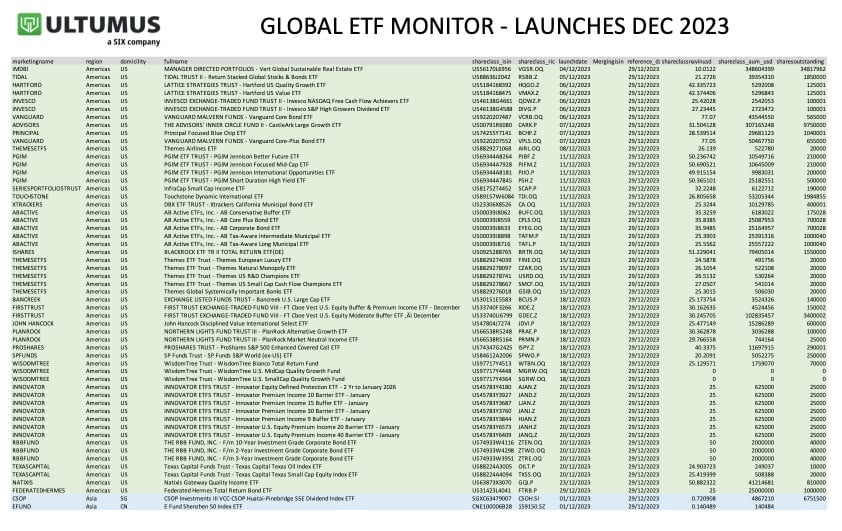USA
IndexIQ lists high IQ market share ETF and short duration bond ETF
IndexIQ is listing two interesting smart beta ETFs, the two of which do very different things.
- IQ 500 International ETF (IQIN)
- IQ Short Duration Enhanced Core Bond US ETF (SDAG)
IQIN will buy companies from the 23 rich countries excluding the US. For companies to qualify they have to meet basic liquidity requirements. Those that do are ranked based on how big their market share is compared with their sector group peers and their average market share over the past three years is calculated (i.e. Shell, BP and Total would be ranked on how much of the energy sector they take). Companies sales figures are also measured and compared.
The index then gives a composite score, with the top 500 picked and weighted based on scores. Companies are limited to taking 5% of the total index.
SDAG, the new bond ETF, is built as an ETF of ETFs that seeks to outperform the short duration US dollar-denominated taxable fixed income universe. It will try to do this by using momentum factors to pick which parts of the bond universe to invest in, the prospectus says.
The ETFs the fund will buy can mostly come from the following sectors of the bond market:
- Short-term US Treasuries;
- Short-term US investment grade corporate bonds;
- Short-term US high yield (or “junk”) debt; and
- Short-term US investment grade floating rate bonds.
The fund will pick which sector to overweight based on each sectors momentum, where momentum is the "average total return of the fixed income market sector over a short-term period [compared] with the sector’s average total return index over a longer-term period," the prospectus says.
Exposure to floaties and junk bonds will be capped at 25% of the index. Over long-term periods, the fund is expected to have similar volatility to the short duration fixed income securities market. SDAG rebalances monthly.
Global X rounds off China sector ETF offering
Global X is widening out its Chinese sector ETF suite, listing six new funds that give exposure to further pockets of the Chinese economy.
- Global X MSCI China Consumer Staples ETF (CHIS)
- Global X MSCI China Utilities ETF (CHIU)
- Global X MSCI China Real Estate ETF (CHIR)
- Global X MSCI China Health Care ETF (CHIH)
- Global X MSCI China Information Technology ETF (CHIK)
- Global X MSCI China Large Cap 50 ETF (CHIL)
Every fund charges 0.65% -- which may sound expensive but is actually somewhere in the middle for China ETFs. For example, BlackRock’s China Large Cap ETF charges 0.74%. While Franklin Templeton’s charges 0.19%.
Each index has a “10/50 Index” mechanism from MSCI that controls weights and stops large caps pigging too much of the index, It ensures that no company gets more than 10% of the index and that, in the aggregate, those companies with more than 5% of the do not collectively take more than 50% of the index.




